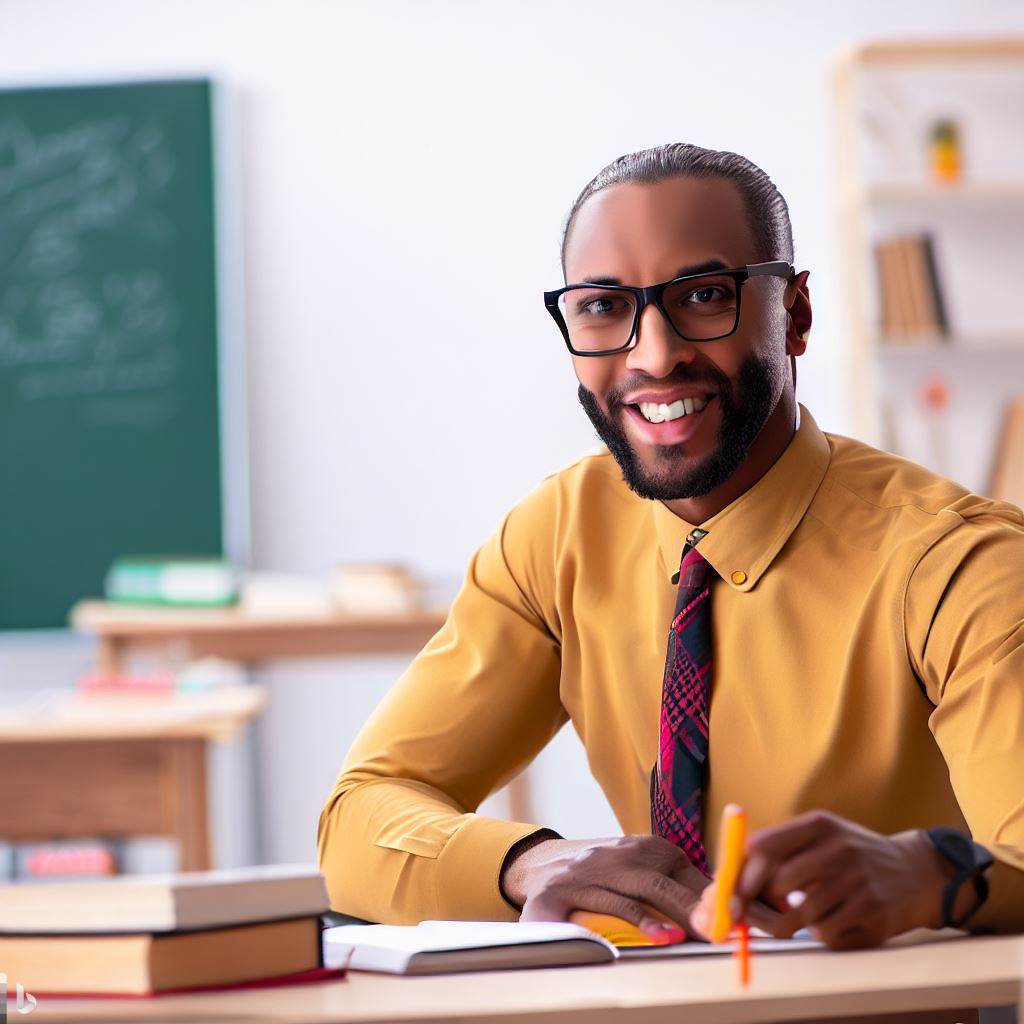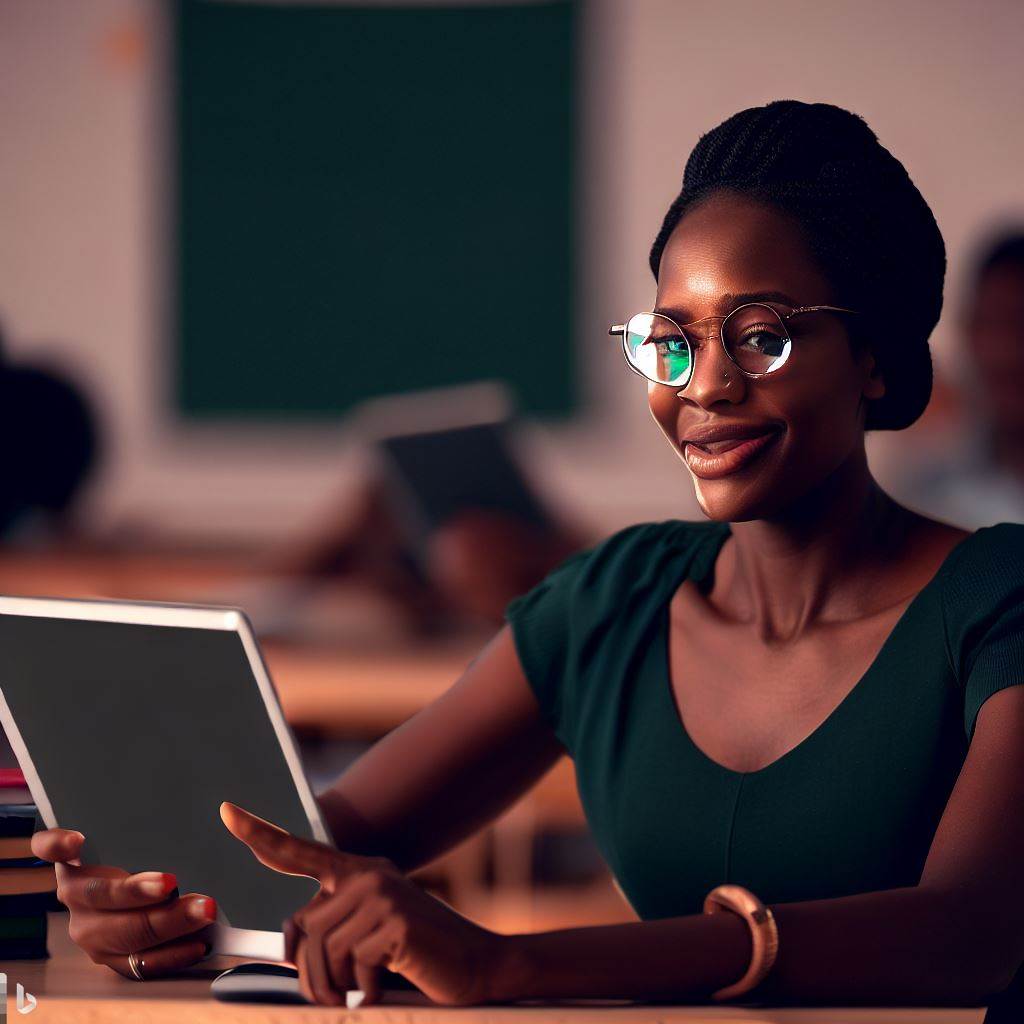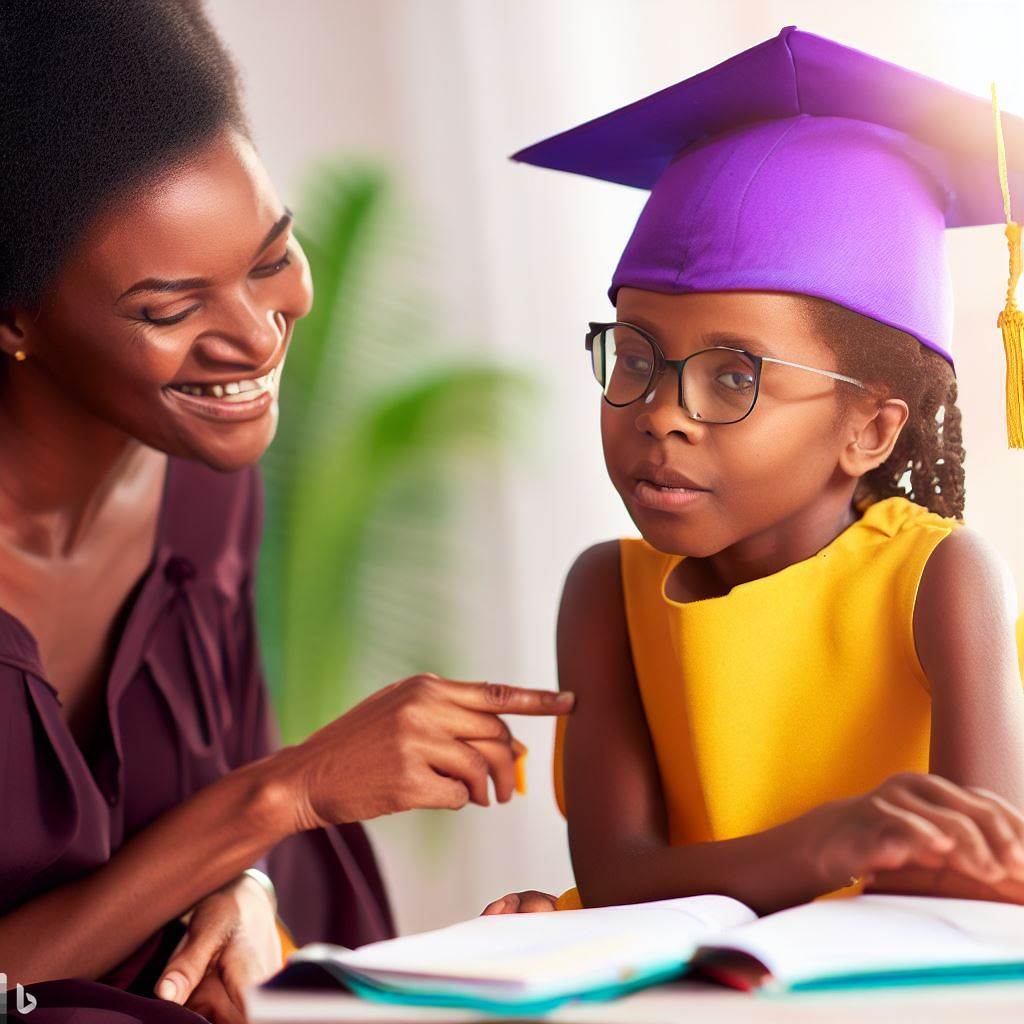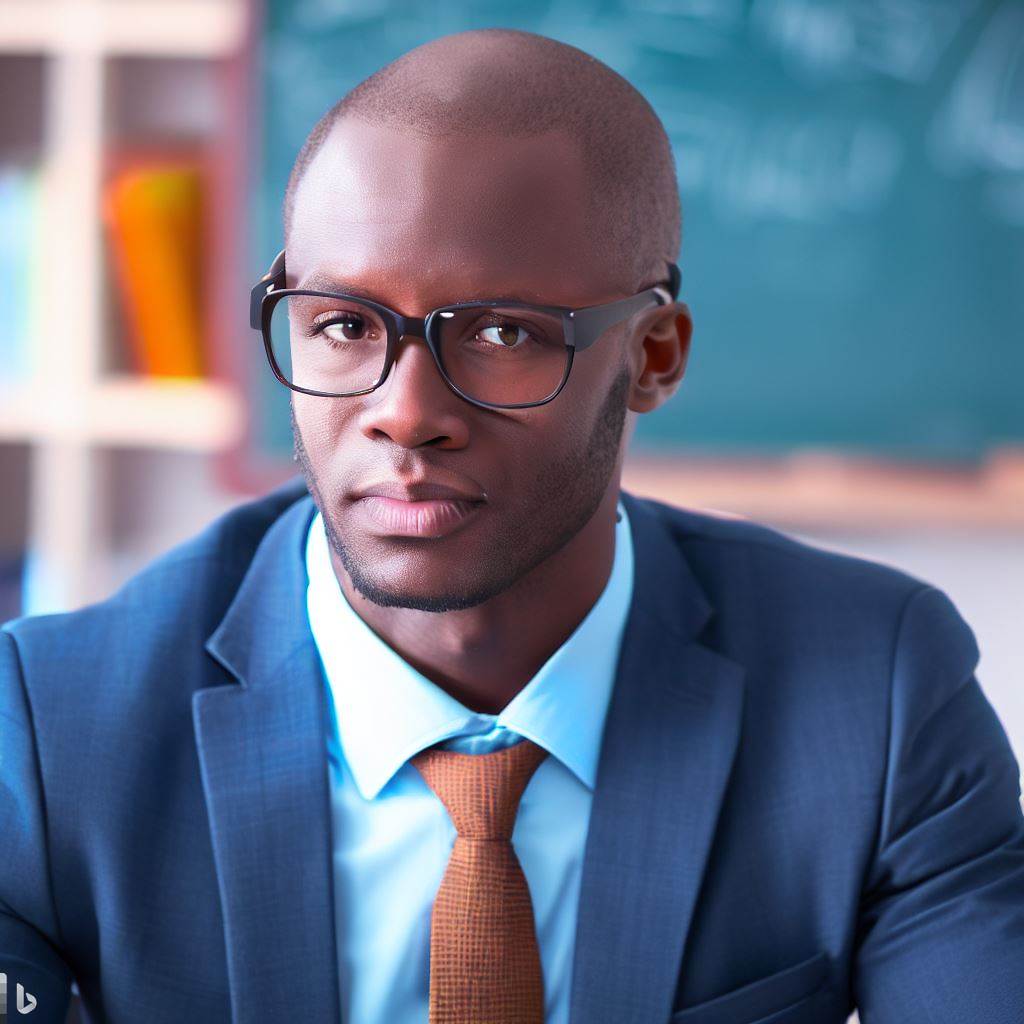Introduction
Special education is a vital field in Nigeria, addressing the diverse educational needs of students with disabilities.
Special education teachers play a crucial role in providing appropriate support and interventions to these students, ensuring their academic and personal growth.
Briefly introducing the topic of special education in Nigeria
In Nigeria, special education focuses on meeting the unique needs of students with disabilities, such as learning disabilities, autism, visual or hearing impairments, and physical or intellectual challenges.
These students require specialized teaching techniques and approaches to facilitate their learning and development.
The importance of special education teachers
Special education teachers in Nigeria are essential in structuring inclusive and effective learning environments for students with disabilities.
They possess the knowledge, skills, and strategies to address individual needs and create tailored educational plans.
By employing various instructional techniques, they can enhance student engagement and academic achievement.
These teachers also provide emotional and social support to students, promoting their overall well-being and inclusion within the school community.
They collaborate with other professionals, such as therapists and counselors, to ensure a comprehensive approach to special education.
Moreover, special education teachers advocate for the rights of students with disabilities, raising awareness about their unique needs and promoting an inclusive society.
They serve as advocates for inclusive policies and work towards fostering a more inclusive educational system.
In the end, special education teachers in Nigeria have a significant impact on the lives of students with disabilities.
Through their knowledge, experience, and dedication, they provide tailored education, support, and advocacy, enabling these students to reach their full potential and thrive in society.
Understanding Special Education in Nigeria
In this section, we will explore the techniques used by special education teachers in Nigeria.
Special education refers to the tailored support and education provided to individuals with disabilities or exceptionalities.
It is crucial to ensure that all individuals, regardless of their abilities, have equal access to education and the opportunity to reach their full potential.
Read: A Comprehensive Overview of Special Education in Nigeria
Special Education and its Importance
Special education focuses on addressing the unique needs of students with various disabilities, including intellectual, physical, sensory, emotional, or multiple disabilities.
It aims to provide individualized teaching methods and support systems to enable these students to learn effectively.
The importance of special education in Nigeria cannot be overstated. It is a means of promoting inclusivity and ensuring that no child is left behind.
Special education helps students with disabilities to acquire knowledge, develop essential skills, and improve their overall quality of life.
Challenges and Barriers Faced by Special Education Teachers in Nigeria
Special education teachers in Nigeria face numerous challenges and barriers in their profession. One of the primary challenges is the lack of adequate resources and support systems.
Many schools lack specialized equipment, assistive technologies, and teaching materials necessary to cater to students with disabilities.
Additionally, the high student-to-teacher ratio often makes it difficult for special education teachers to provide individualized attention to each student.
The limited training opportunities and professional development for special education teachers further exacerbate these challenges.
Moreover, attitudes and societal stigmas towards individuals with disabilities can create barriers to inclusive education.
Some people still hold misconceptions about disabilities, which may lead to discrimination and exclusion of students with special needs from mainstream schools.
Role of the Government and Policies in Promoting Special Education
The government plays a crucial role in promoting special education in Nigeria. It is responsible for developing policies and allocating resources to support inclusive education.
The government needs to prioritize funding for special education programs, ensuring that schools have the necessary resources and infrastructure.
Government policies should also focus on improving the training and professional development of special education teachers.
Providing access to specialized training programs and continuous support will enable teachers to acquire the necessary skills and knowledge to effectively address the diverse needs of students with disabilities.
Furthermore, the government should collaborate with relevant stakeholders, including non-governmental organizations and parents’ associations, to create awareness about the importance of inclusive education and advocate for the rights and well-being of individuals with disabilities.
Read: The Impact of Culture on Special Education in Nigeria
Techniques Used by Special Education Teachers in Nigeria
Individualized Education Plans (IEPs)
In Nigeria, special education teachers employ various techniques to support and empower students with special needs.
One essential technique is the use of Individualized Education Plans (IEPs). These personalized plans outline the necessary support and services required for each student to achieve their goals.
By creating and implementing IEPs, special education teachers assess individual student needs and determine the appropriate strategies and accommodations to enable their success.
Multisensory Teaching
Another technique employed by special education teachers in Nigeria is multisensory teaching. This approach involves engaging multiple senses to enhance learning and understanding.
Recognizing that students have diverse learning preferences, teachers incorporate activities that stimulate visual, auditory, and kinesthetic senses.
This technique ensures that students are actively involved in the learning process and can better retain information.
Assistive Technology
Assistive technology plays a crucial role in special education classrooms in Nigeria. This technology refers to tools and devices that assist individuals with special needs in improving their abilities.
Special education teachers utilize various assistive technology tools such as text-to-speech software and communication devices.
These tools aid students in accessing information, expressing themselves, and promoting independence.
By incorporating assistive technology, teachers can better meet students’ individual needs and provide a more inclusive learning environment.
Differentiated Instruction
Differentiated instruction is another fundamental technique used by special education teachers in Nigeria.
This approach recognizes that students have different learning styles, abilities, and interests.
Teachers adapt their teaching strategies to accommodate these diversities. They provide personalized instruction, offer varied materials, and modify assignments to ensure every student’s success.
By tailoring their methods, teachers can create an inclusive classroom environment where each student can thrive.
In conclusion, special education teachers in Nigeria employ various techniques to support students with special needs.
Individualized Education Plans (IEPs) provide personalized support and services, ensuring each student’s success. Multisensory teaching engages multiple senses to enhance learning and understanding.
Employing assistive technology tools promotes accessibility and independence. Differentiated instruction tailors teaching methods to meet individual student needs.
These techniques collectively contribute to creating an inclusive and empowering learning environment for students with special needs in Nigeria.
Read: Special Education Legislation and Policies in Nigeria
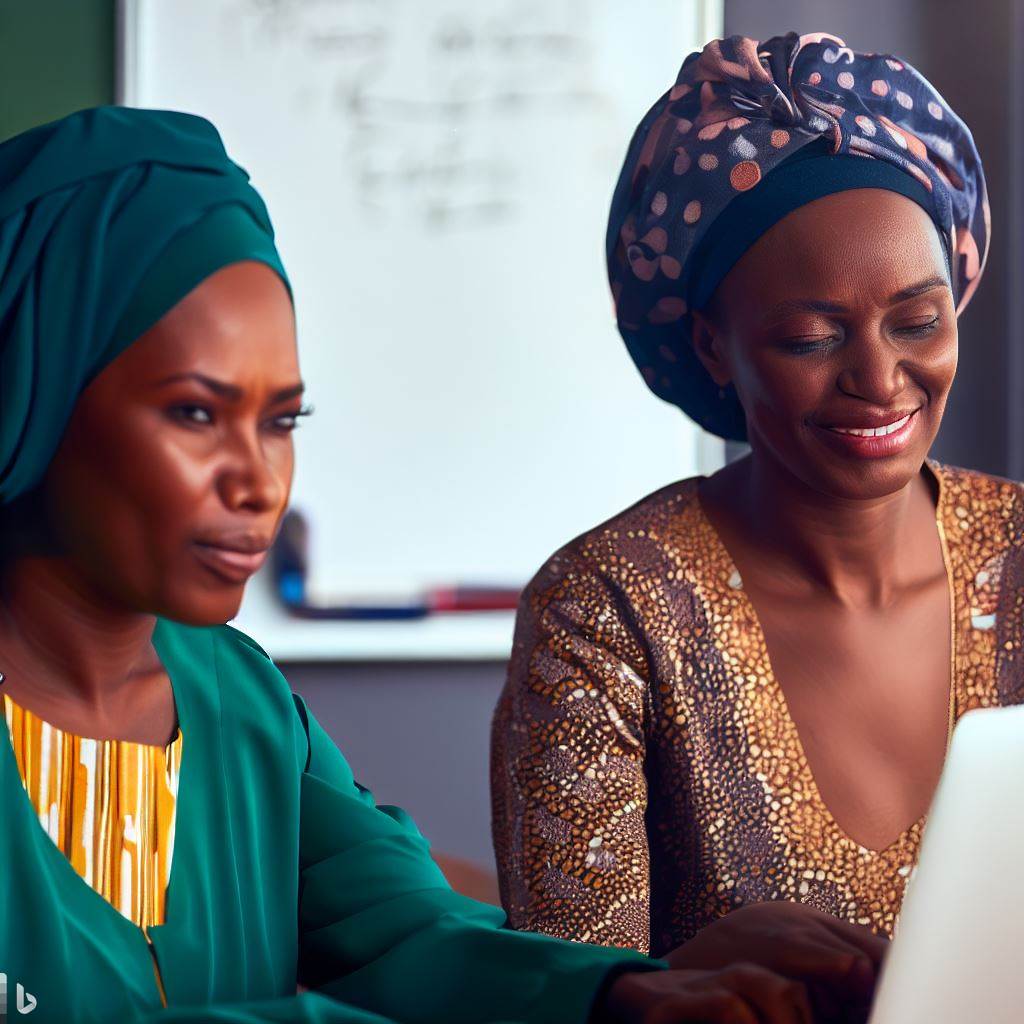
Collaboration and Inclusion in Special Education
The importance of collaboration between special education teachers and other professionals
Collaboration between special education teachers and other professionals is crucial in Nigeria.
Regular classroom teachers, psychologists, and speech therapists should work together for the benefit of students.
Successful collaboration initiatives in Nigeria’s special education sector
Successful collaboration initiatives are making a positive impact in Nigeria’s special education sector. These initiatives involve regular meetings, sharing resources, and developing individualized education plans (IEPs).
Inclusion is the concept of providing equal opportunities and access to education for students with special needs.
It allows them to participate actively in the classroom and benefit from a supportive learning environment. Special education teachers in Nigeria play a crucial role in promoting inclusion in schools.
They advocate for inclusive policies and practices that ensure students with special needs are integrated into regular classrooms.
Collaboration with regular classroom teachers is vital in promoting inclusion. Joint planning, co-teaching, and sharing of strategies support the successful inclusion of students with special needs.
Psychologists and speech therapists also contribute to inclusion by providing assessment and intervention services.
Regular classroom teachers benefit from collaboration as they gain insight into effective teaching strategies.
Collaboration enhances their ability to provide differentiated instruction and meet the diverse needs of all students.
One successful collaboration initiative in Nigeria is the Inclusive Education Resource Centers (IERCs).
These centers work to support inclusive practices by providing resources, training, and support for teachers.
Read: Insights into the Teaching Profession in Nigeria Today
How special education teachers in Nigeria promote inclusion in schools
Another initiative is the National Teacher Education Program (NTEP), which focuses on inclusive education training.
NTEP aims to improve the skills and knowledge of special education teachers to facilitate inclusion.
Teachers in Nigeria also utilize assistive technologies and adapted teaching materials to promote inclusion.
These tools help students with special needs access and participate in the learning process. Inclusive education benefits all students, regardless of their abilities or disabilities.
It promotes acceptance, empathy, and diversity among students, fostering a more inclusive society.
Overall, collaboration and inclusion are crucial aspects of special education in Nigeria.
By working together and promoting inclusive practices, educators can create a more inclusive and supportive learning environment.
Read: Opportunities for Special Education Teachers in Nigeria
Overcoming Challenges and Improving Special Education in Nigeria
Current challenges faced by special education teachers in Nigeria
- Limited resources pose a major challenge for special education teachers in Nigeria.
- Inadequate training hinders the ability of special education teachers to effectively meet the needs of their students.
- Stigma associated with special needs often leads to discrimination and exclusion within the education system.
Possible strategies and solutions to improve special education in Nigeria
- Increasing funding for special education programs to provide better resources and support.
- Developing comprehensive and specialized training programs for special education teachers.
- Promoting awareness and understanding of special needs to reduce stigma and encourage inclusive education.
- Establishing inclusive schools that provide support services for students with special needs.
- Collaborating with parents, communities, and stakeholders to create a supportive network for special education.
- Implementing policies and legislation that protect the rights of individuals with special needs.
Successful initiatives and organizations improving special education in Nigeria
- The Inclusive Education Initiative is working to promote inclusive education practices and train special education teachers.
- The Special Needs Trust Fund provides financial support and resources to organizations catering to special education in Nigeria.
- The Rainbow Foundation aims to empower children with disabilities through education and vocational training programs.
- Hopeville Foundation for the Disabled provides educational opportunities and social support for individuals with disabilities.
- The African Special Schools Initiative is collaborating with various partners to establish special schools across Nigeria.
Generally, improving special education in Nigeria is crucial for providing equal opportunities and support for individuals with special needs.
By addressing the challenges of limited resources, inadequate training, and stigma, and implementing strategies like increased funding, specialized training, and inclusive schools, Nigeria can make significant progress in this field.
Additionally, the efforts of organizations like the Inclusive Education Initiative, the Special Needs Trust Fund, the Rainbow Foundation, Hopeville Foundation, and the African Special Schools Initiative are instrumental in improving the state of special education in the country.
Read: The Role of a Special Education Teacher in Nigeria
Conclusion
This blog post has highlighted the techniques used by special education teachers in Nigeria.
Throughout the discussion, we have emphasized the significant role that these teachers play in the education system and their dedication to helping students with special needs.
Some of the techniques discussed include individualized instruction, visual aids, assistive technology, and collaboration with other professionals.
These techniques have proven to be effective in facilitating the learning and development of students with special needs.
However, despite their important role, special education teachers in Nigeria face several challenges such as lack of resources, inadequate training, and limited support.
Therefore, it is crucial that they receive further support and recognition to ensure the success of inclusive education in the country.
We call upon the government, education authorities, and society as a whole to provide the necessary resources, training, and support to special education teachers.
It is essential to invest in their professional development, provide appropriate classroom materials, and create an inclusive environment for students with special needs.
By recognizing and supporting special education teachers, Nigeria can ensure that every child, regardless of their abilities, has access to quality education and the opportunity to reach their full potential.
Together, we can build an inclusive education system that promotes equality and empowers all students to succeed.

